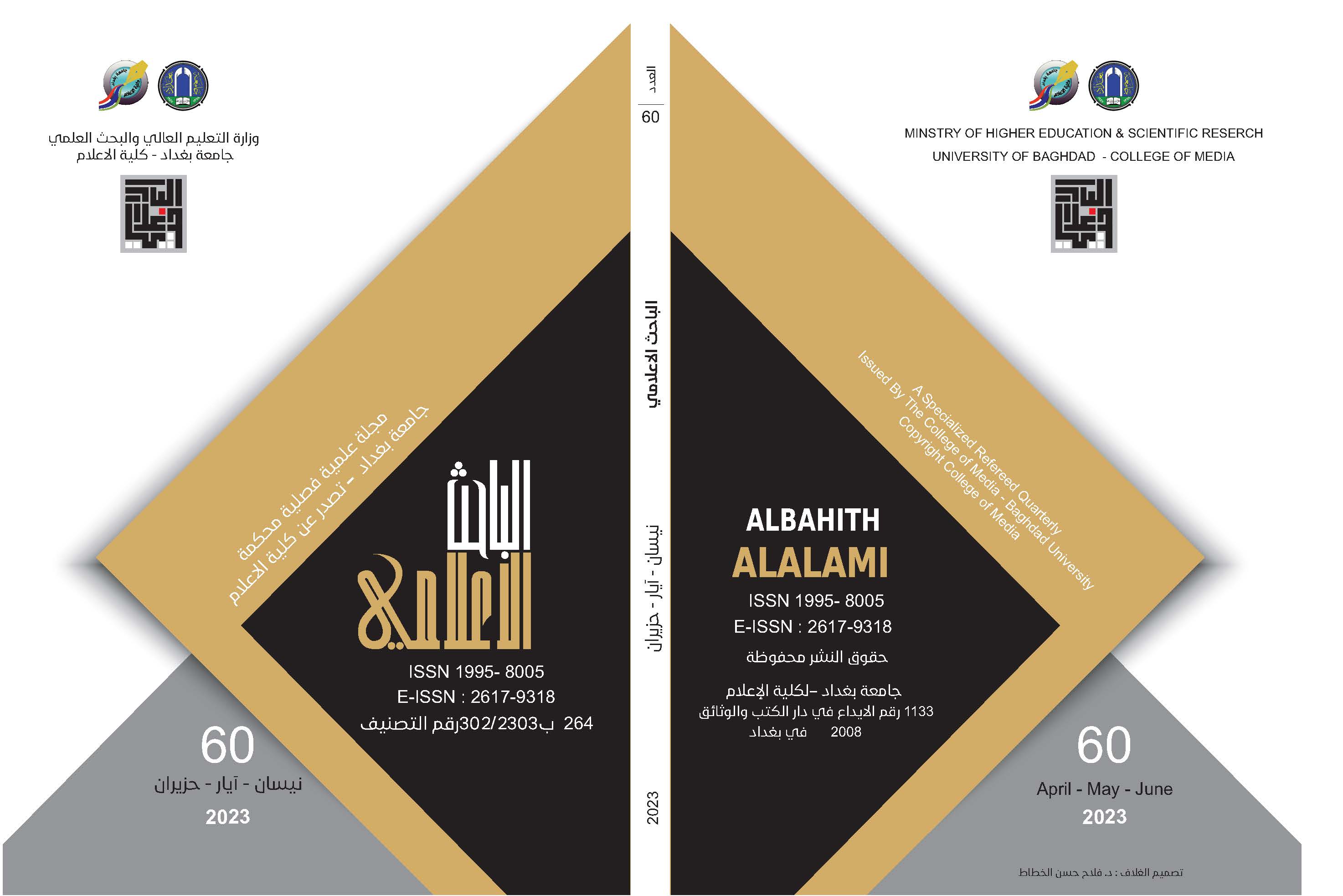Public Attitudes Towards National Issues in Interactive Television Programs
DOI:
https://doi.org/10.33282/abaa.v15i60.1011Keywords:
Attitudes; Interactive; National issuesAbstract
This research aims to investigate the extent to which the Iraqi audience relies on interactive television programs as a source of information regarding national issues and their resulting impacts. It seeks to identify the types and nature of attitudes developed among the public towards national issues through these programs and determine the prominent topics and issues highlighted to the audience. The researcher employed a field survey as the primary research method, employing a questionnaire for data collection along with scientific observation and the Likert three-point scale to measure attitudes. The study was guided by the media dependency theory. A sample of 520 questionnaires was distributed to residents in Baghdad province using a multi-stage cluster and purposive sampling approach. The study yielded several notable findings, including:
1. The sample participants exhibited a high level of interest in following national issues on satellite channels, with %98.4 indicating their engagement.
2. Cognitive motives and goals, such as understanding and guidance, ranked as the most significant motivations for relying on satellite channels as a source of information on national issues.
Downloads
References
Abd, A. F. (2018). interactive programs on directed satellite channels and their role in determining the public's priorities regarding (unpublished PhD thesis). Department of Radio and Television Journalism, College of Mass Communication, University of Baghdad.
Al-Abdullah, M., & Shane, A. (2014). Lexicon in modern concepts of information and communication Arab project to unify terminology. Beirut: Dar Annahda Alarabiya.
Al-Tahanwiu, M. A. (1996). Encyclopedia of Scouts of Conventions of Arts and Sciences. Beirut: Library of Lebanon.
Hadid, S. (2019). Journalistic processing technique: a study in addressing partisan press attitudes towards national issues. Baghdad: Zaki Typing Office.
Hameed, S. S. (2018). Public exposure to news satellite channels and its relationship to levels of preference and evaluation of programs: Survey study on a sample of the audience of Baghdad City Cente. ALBAHITH ALALAMI, 10(41), 73-108. https://doi.org/10.33282/abaa.v10i41.12
Hijab, M. M. (2000). the scientific foundations book for writing undergraduate theses (3 ed.). Cairo: Dar Al-Fajr for publication and distribution.
Hussein, A. A. (2016). interactivity in satellite channel sites and its role in promoting freedom of opinion and expression (unpublished PhD thesis). Department of Radio and Television Journalism, College of Mass Communication, University of Baghdad.
Ibrahim, I. (2017). Media Research Methods. Cairo: Dar Al-Fajr for publication and distribution.
Lotfi, M. A. (2018). Talk show programs and crisis media. Cairo: Dar Al-Arabi for publication and distribution.
Downloads
Key Dates
Published
Issue
Section
License
Copyright (c) 2023 ALBAHITH ALALAMI

This work is licensed under a Creative Commons Attribution 4.0 International License.
Authors retain copyright and grant the journal right of first publication with the work simultaneously licensed under a Creative Commons Attribution License (CC BY 4.0) that allows sharing the work with recognition of authorship and initial publication in ABBA journal.


















